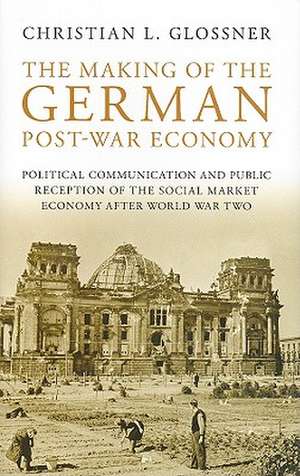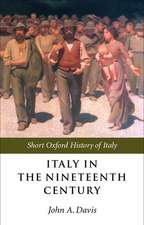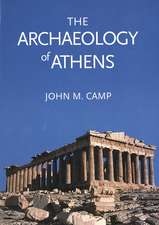The Making of the German Post-War Economy: Political Communication and Public Reception of the Social Market Economy After World War II: International Library of Twentieth Century History, cartea 25
Autor Christian L. Glossneren Limba Engleză Hardback – 28 feb 2010
The economic regeneration and post-war reconstruction of West Germany is one of the most remarkable success stories of the 20th century. However, little is known about the processes and debates that fuelled this era of extraordinary change and upheaval. Christian Glossner here explores the events and individuals of this period, tracing the development of economic and socio-political ideas and their gradual absorption by mainstream politicians, officials and the general public during the period of transition between 1945 and 1949. In the process, he reveals the dynamic interplay between political parties and the electorate during the process of economic liberalisation that was to result in the Social Market Economy prevailing as the socio-political and economic model for the new Federal Republic of Germany.
| Toate formatele și edițiile | Preț | Express |
|---|---|---|
| Paperback (1) | 251.83 lei 6-8 săpt. | |
| Bloomsbury Publishing – 29 noi 2012 | 251.83 lei 6-8 săpt. | |
| Hardback (1) | 774.20 lei 6-8 săpt. | |
| I. B. Tauris & Company – 28 feb 2010 | 774.20 lei 6-8 săpt. |
Preț: 774.20 lei
Preț vechi: 1113.16 lei
-30% Nou
148.19€ • 161.02$ • 124.56£
Carte tipărită la comandă
Livrare economică 21 aprilie-05 mai
Specificații
ISBN-10: 1848852649
Pagini: 289
Dimensiuni: 142 x 218 x 33 mm
Greutate: 0.54 kg
Editura: I. B. Tauris & Company
Seria International Library of Twentieth Century History
Locul publicării:United Kingdom





















